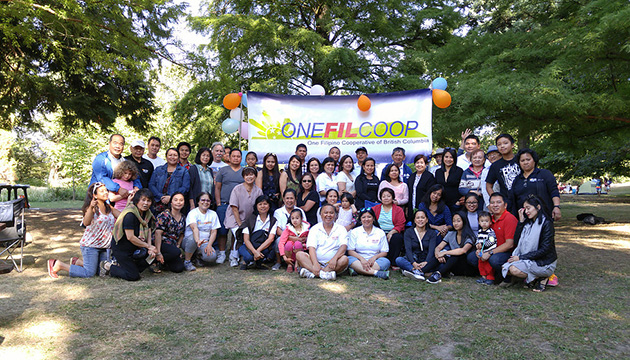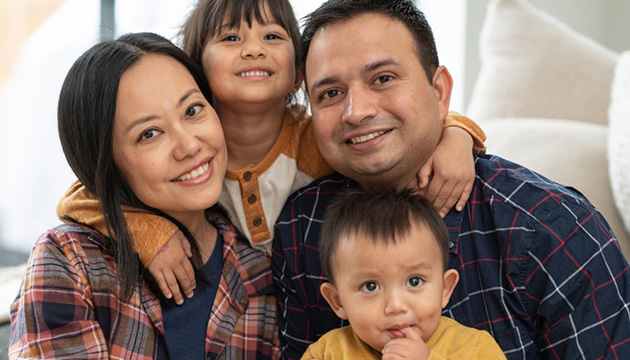June 16, 2024 — [Editor’s note: We are reprinting this 2020 article by Eleanor Laquian on why caregivers deserve permanent residence status upon arrival in Canada. On June 3, 2024, the federal government announced a policy to grant permanent residence to arriving caregivers.]
March 16, 2020 – The liberal government of self-declared “feminist” Prime Minister Justin Trudeau marked Gender Equality Week in September 23-27, 2019, by declaring that it has made progress in advancing gender equality in Canada.
As Canada reflects on its progress on realizing women’s rights during this year’s International Women’s Day celebration, it should take a closer look at the plight of thousands of caregivers and domestic workers in Canada, 98 percent of whom are women of color, who were hoping to find a better life in prosperous Canada.
The racism and social injustice of the LCP
Taking advantage of cheap labor, Canada allowed these caregivers and domestic workers to do low-paying but essential jobs that most Canadians do not want. They were admitted as second class easily replaceable migrants with temporary employment visas that allowed them to stay in Canada only for a limited period and only on condition that they retain domestic employment. Their temporary immigration status made sure that they stay in their devalued positions even though it made them vulnerable to exploitation and abuse by employers and recruiters.
These care workers have been coming to Canada for over a hundred years. In the past, European women came to be household helpers. For the last 50 years or so, however, most of the caregivers and domestic workers have come from developing countries through Canada’s Foreign Domestic Movement (FDM), which later became the Live-in Caregiver Program (LCP). The restrictions of these programs have led to seriously damaging and lasting impacts on the physical and mental health of caregivers and their families. Due to the short-sightedness of these programs, years of family separation caused familial conflicts between alienated caregiver-mothers and their estranged children resulting in many family breakdowns and marriage failures.
This continued exploitation of racialized women on employment authorizations by the Trudeau government is a form of racism and social injustice that makes Trudeau’s liberal government’s claim that it values women’s rights questionable. Are caregivers from developing countries not considered women with rights because of their color?
Before FDM and LCP, thousands of British and European women and girls were invited to immigrate to Canada as household helpers and there were no restrictions on their becoming permanent residents or citizens in Canada. But with the FDM which targeted Caribbean women primarily and the LCP which attracted Asian women, these women of color were not given as easy an access to permanent residency as those European women before them who came to do the same work.
The only just solution – landed status
Although the LCP was discontinued in 2014, there are many caregivers who came under the program who are still struggling to get permanent residency, reunite their family and secure a decent future for their children. To end the exploitation of these long suffering women, Prime Minister Trudeau’s liberal government should abolish all its short term caregiver pilot projects which are mere bandaid-type solutions to LCP-caused problems. It’s time for this government to end this injustice to thousands of women of color and simply allow these care workers who are already here to become permanent residents without making them jump through hoops and allow future caregiver applicants to come to Canada as regular immigrants with permanent resident status on arrival and with the same right as other immigrants to seek a better life and a brighter future for their children in Canada.
A 2006 updated study of caregivers and domestic workers in Canada showed that the educational level of LCP principal applicants has increased steadily over the years, and is now very high. In 2009, 63 per cent of LCP principal applicants held a bachelors degree or higher. This is a remarkably high proportion, and far exceeds the proportion of principal applicants in ‘economic’ categories of immigration who have university degrees (39.5 per cent) (CIC Facts and Figures, 2009: p42). The study also showed that from 1993 to 2009, 444 LCP principal applicants had Masters degrees and 48 had earned doctorates.
The study also showed that although a majority of LCP principal applicants are aged between
20-40, an increasing minority are aged over 40. In recent years, these principal applicants are also more likely to be married than in the past. The overwhelming majority of caregivers are women, 90 percent from the Philippines, although a small proportion of men, and Indian-born immigrants, have arrived through the program in recent years.
Even if these LCP applicants were evaluated under Canada’s Comprehensive Ranking System (CRS) or Points system based on skills, education, language ability, work experience and other factors such as age, they could easily score 67 points or higher out of 100 to qualify to immigrate in Canada under the Federal Skilled Worker Program. Thus they should not be treated as temporary foreign workers, needed but not wanted as permanent residents or citizens.
The Ageing of Canadian Society
With low fertility rates and more couples getting married at a later age, the number of those who are 65 years or older are expected to double in less than two decades from 5.0 million to 10.4 million in 2036. In 2014, over 6 million Canadians were aged 65 or older, representing 15.6 percent of Canada's population. By 2015, 1 in 4 Canadians were 65 years and older. For the first time, there were more Canadians over the age of 65 than under the age of 15. By 2030—in just 10 years from now—seniors will number over 9.5 million, making up 23 percent of Canadians.
The graying of Canada’s population will require an increasing number of caregivers. It also means less revenue but rising healthcare costs for the government.
Caring for ageing parents costs Canadians an estimated $33 billion a year in out-of-pocket expenses and time taken from work, and that figure is expected to grow, according to a report by economists at CIBC. Senior care costs according to Canadian Institute for Health Information (CIHI): The average for those 65 and older was $11,635. Predictably, the older the patient, the higher the average cost. In 2014, per-person spending for seniors increased with age: $6,424 for those aged 65 to 69, $8,379 for ages 70 to 74, $11,488 for ages 75 to 79, and $21,150 for those 80 and older.
In Canada, the government only pays 70 percent of healthcare costs. The other 30 percent is left for seniors or their family caregivers to pay. After the age of 65, Canadians expect to spend an average of $5,391 every year on out-of-pocket medical expenses. Family caregivers spend an average of $3,300 a year on these expenses.
Studies also showed that family members who cared for ailing children or older relatives reported more health and psychological problems, mainly because of the intensity of care provided. Those who cared for an ailing spouse also experienced financial difficulties as a result of their caregiving responsibilities and loss of spousal income.
Without caregivers employed by families to look after their ailing spouse or parents and grandparents, the government will have to spend billions of dollars to provide institutional careor th elderly. Even at that, most nursing homes have been found by families to be wanting.
The best place for ailing old people is at home in the compassionate care of competent caregivers privately paid for and supervised by family members. This is how the government can save money in institutional care and at the same time ensure the proper care of Canadian seniors. The Philippines is the dominant source of care-givers not only to Canada but to several countries (US, Spain, Italy, Israel, etc) because Filipino caregivers are an educated workforce, they share the Christian values of the majority of the native population and have the language skills.
Because they provide an essential service to the rapidly increasing number of ageing Canadians, the processing of caregivers applications as regular landed immigrants should be expedited so that they arrive in Canada within two years upon application. By so doing, this liberal government will increase its revenue because more women will be able to work outside the home. The government will spend less on institutional care, reduce healthcare costs, end gender-based exploitation of racialized women, and it would have truthfully advanced women’s rights in Canada.
To support caregivers, please send a copy of this article to your MP, (Alberta, British Columbia, Manitoba, New Brunswick, Newfoundlland and Labrador , Nova Scotia, Ontario, Quebec, Prince Edward Island, Saskatchewan) MLA and the office of Prime Minister Justin Trudeau. No stamps needed.












